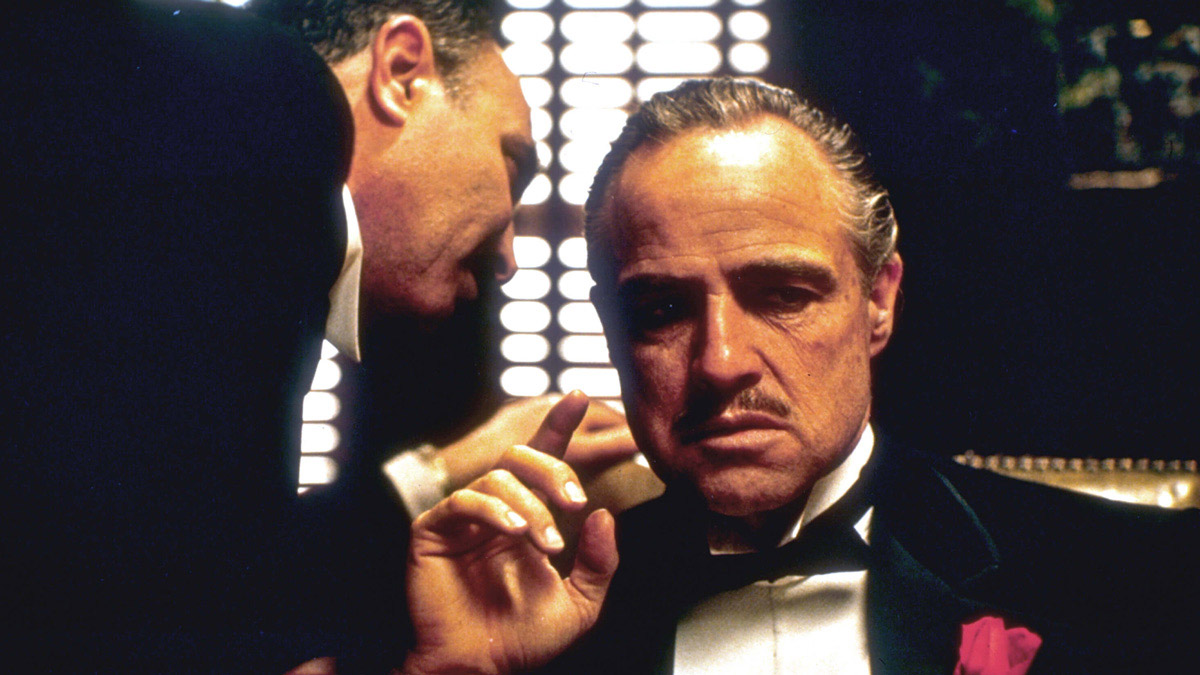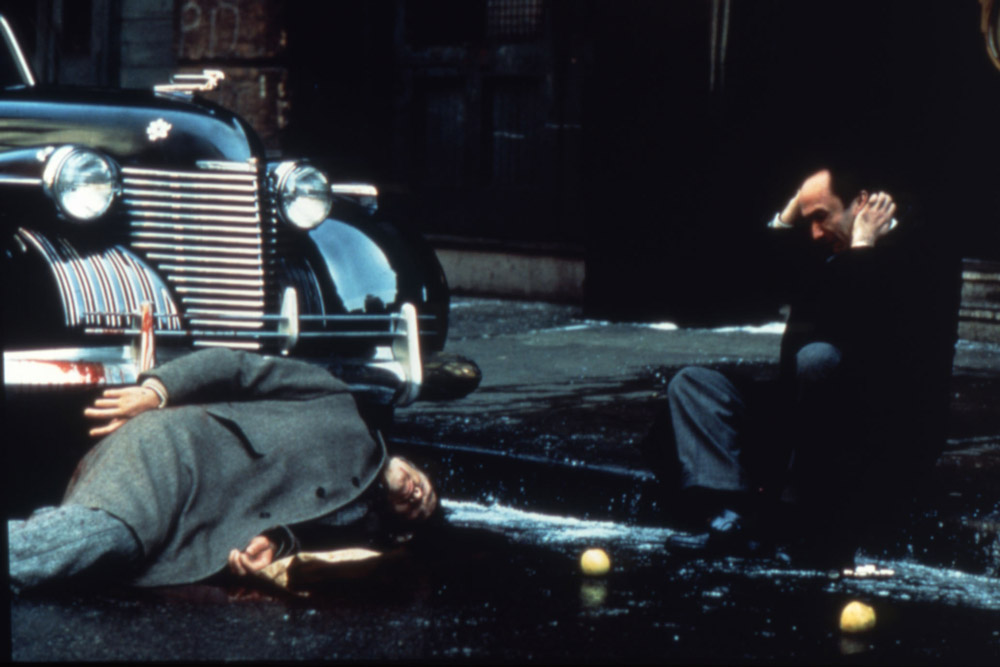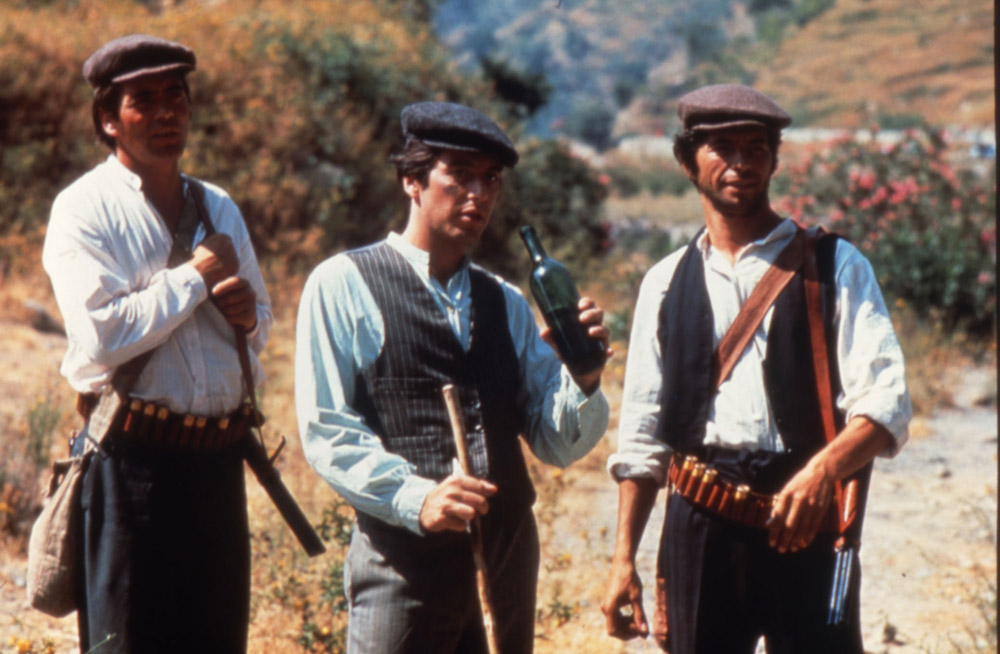
Copyright (C) 1974 by Paramount Pictures and The Coppola Company. All Rights Reserved. Restoration Copyright (C) 2007 by Paramount Pictures Corporation. All Rights Reserved.TM, (R) & Copyright (C) 2014 by Paramount Pictures. All Rights Reserved .
What are the coincidences that piled up on the way to the masterpiece of ``The Godfather''?
2018.09.28
A bestseller written for money by a struggling author
I have already mentioned that ``The Godfather'' is Francis Coppola's masterpiece. Coppola also directed `` The Godfather Part II '' and `` Part III ,'' and co-wrote the screenplay with original author Mario Puzuo. However, the story of the first film, The Godfather, was entirely created by the original author, Pudu.
Pudu, who only had a track record of publishing a few unsold novels, was an unparalleled gambling addict, racked up a large amount of debt, and was at the lowest point in his life. In his book, The Godfather Papers and Other Confessions, Pudu writes: "I was 45 years old, tired of trying to be an artist, and owed $20,000 to relatives, finance companies, banks, publishers, and loan sharks. It was time to grow up. , it's time to sell yourself, as Lenny Bruce once advised me. I said to my publisher, OK, I'm going to write a book about The Godfather..." It was a desperate measure born out of this.

"The Godfather" Copyright (C) 1974 by Paramount Pictures and The Coppola Company. All Rights Reserved. Restoration Copyright (C) 2007 by Paramount Pictures Corporation. All Rights Reserved. TM, (R) & Copyright (C) 2014 by Paramount Pictures. All Rights Reserved.
Far beyond Pudu's expectations, ``The Godfather'' became a worldwide bestseller, but as Pudu himself admitted, he was by no means well-versed in the world of the mafia. Puzo was of Italian descent, but his parents were immigrants from Naples (Al Capone was also an immigrant from Naples), rather than from Sicily, the Mafia's homeland. Puzuo spent his childhood in New York's notorious Hell's Kitchen, but he only ran errands for thugs a few times and never knew anyone in the real Mafia.
Puzuo, who was writing manuscripts for sleazy pulp magazines to make a little money, had heard anecdotes about the mafia, and used his research and imagination to write about the world of the mafia. Don Corleone, the head of the family played by Marlon Brando, references the mafia's masculine values and lines when writing lines, and in the movie Don Corleone, the head of the family, supports his family with only one woman and leads Pudu to the world of crime. He was modeled after his mother, who raised him away from his parents.
According to the autobiography `` Fuck The Godfather,'' by Robert Evans, who was Paramount's production manager at the time and was heavily involved in ``The Godfather,'' Coppola was hired simply because ``he was of Italian descent.'' Coppola was a promising new director, but he had never made a hit, and the studio didn't think he could be entrusted with a major project. But Paramount originally wanted to make a quick, low-budget gangster movie to make money. Because period pieces are expensive to produce, they were considering setting the film in modern times. Furthermore, Coppola, who had been rejected by big-name directors and was looking for an Italian director to avoid the bad impression of Hollywood-ized gangster films up until that point, was also struggling with debt. I stood up.

"The Godfather" Copyright (C) 1974 by Paramount Pictures and The Coppola Company. All Rights Reserved. Restoration Copyright (C) 2007 by Paramount Pictures Corporation. All Rights Reserved. TM, (R) & Copyright (C) 2014 by Paramount Pictures. All Rights Reserved.
However, Coppola, who accepted the directorship, said, ``Rather than tell a story about an organized gang, I would like to make a chronicle of a family.'' For Evans and the leadership at Paramount, it was a major departure from the established formula of easy-to-make, mass-market gangster films. They were supposed to be looking for a director who could finish the job quickly and cheaply, but the director they hired suddenly started showing seriousness. .
In fact, when Coppola was first offered the role, he abandoned the original book midway through, calling it a ``cheesy popular novel that sells violence and sex.'' However, when he was asked to direct the film again, he read the original story again and changed his mind when he realized that Puduo had written ``the story of fathers and sons, power, and their successors.'' They decided to remove all the cheap and silly scenes and narrow down the characters and story. (According to Puzuo's own assessment) Coppola's keen eye was able to brilliantly pick out The Truth contained in a crappy book that was ``written to sell.''
Don't underestimate the achievements of the original author Pudu!

